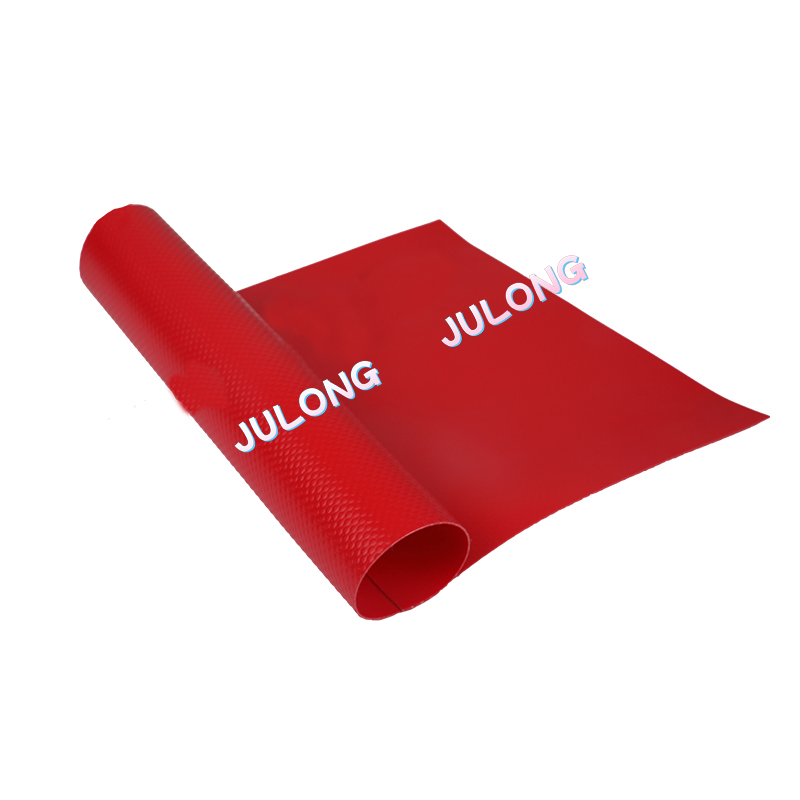PVC (Polyvinyl Chloride) tarpaulin material exhibits varying degrees of resistance to chemicals, oils, and fuels depending on its formulation and intended application. Here’s a detailed overview of its resistance properties:
Chemical Resistance
General Chemical Resistance:
PVC tarpaulin materials are generally resistant to a wide range of chemicals, including acids, alkalis, and salts.
They can withstand exposure to many common chemicals without significant degradation or loss of physical properties.

Specific Chemicals:
Acids and Alkalis: PVC tarpaulins typically resist mild acids and alkalis encountered in outdoor environments.
Solvents: Some solvents may affect PVC, particularly aromatic hydrocarbons and ketones. Resistance to specific solvents should be verified based on intended exposure conditions.
Application Considerations:
PVC tarpaulin materials are commonly used in applications where chemical exposure is moderate, such as vehicle covers, industrial curtains, and temporary storage enclosures.
Enhanced chemical resistance may be achieved through specialized coatings or treatments depending on specific requirements.
Oil and Fuel Resistance
Resistance to Oils:
PVC tarpaulin materials generally exhibit good resistance to mineral oils and lubricants commonly encountered in automotive and industrial applications.
Resistance may vary depending on the type and concentration of oils.
Resistance to Fuels:
PVC tarpaulins typically resist fuels such as gasoline and diesel to some extent.
Prolonged exposure to fuels may cause swelling or softening of the material, particularly if additives or reinforcements are not specifically designed for fuel resistance.


 English
English عربى
عربى







